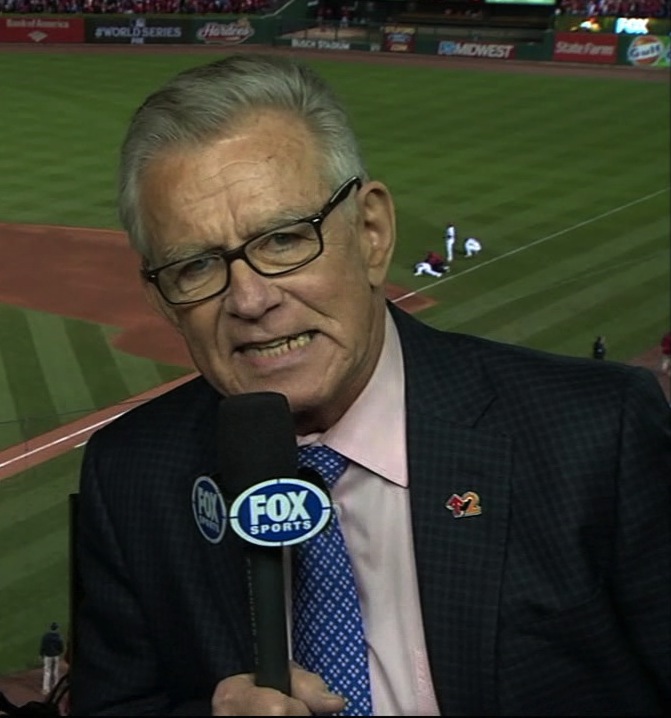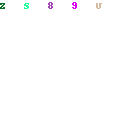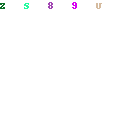The US Open has the longest TV history of any of the golf majors. It stands unique as the only major which still conducts an 18-hole playoff.
. Here is a summary of my research on how the coverage of our national championship has evolved since 1954. All listings of hours refer to scheduled TV coverage.
Chronology of US Open TV coverage
1954 - The US Open was televised nationally for the first time as
NBC provided 2 hours of Saturday coverage anchored by
Lindsey Nelson. At the time, the tournament was a 3-day event concluding with 36 holes on Saturday.
1955 - NBC provided only one hour of coverage this year and ended its Saturday telecast with analyst
Gene Sarazen congratulating Ben Hogan on his "victory" while some golfers were still on the course. But after NBC signed off, Jack Fleck produced two late birdies to tie Hogan. Fleck won the 18-hole playoff the next day, but NBC elected not to televise any portion of the playoff.
1959 - NBC included entertainer
Ed Sullivan on the broadcast crew for this telecast. Sullivan was a member at Winged Foot which hosted the tournament that year. The other members of the NBC team were
Chick Hearn,
Ray Scott, and
Bud Palmer, all of whom worked multiple US Opens during this era.
1962 - NBC added coverage of the Sunday playoff and did the same in 1963.
1965 - The US Open changed to the modern 4-day format with a Sunday finish and NBC provided coverage on both weekend days. NBC also added an hour of coverage for the Monday playoff. NBC televised the 1965 tournament in color which was the first color telecast of any golf major.
1966 -
ABC took over the TV rights and expanded the scheduled total weekend coverage to 3.5 hours. ABC installed
Chris Schenkel as lead announcer and
Byron Nelson as the expert analyst.
Jim McKay and
Bill Flemming were also part of the telecast team. ABC also provided late afternoon coverage of the
Monday playoff.
 1967
1967 -
Henry Longhurst and
Keith Jackson joined the ABC crew.
1970 -
Dave Marr joined the ABC team and called the first of 22 consecutive US Opens for the network.
1971 - ABC added
Frank Gifford to the mix. ABC also added coverage of the Monday playoff.
1973 - ABC used retired LPGA pro
Marilynn Smith as a commentator where she worked alongside Gifford. This marked the first time a female had ever served as an announcer on a men's golf telecast. By this time, ABC had cameras to cover the final 13 holes.
1974 - Marr took over as lead analyst and would remain in that role through the 1991 tournament. ABC also used
Tony Jacklin as an analyst after he missed the cut.
1975 - McKay took over as lead announcer. ABC also added
Peter Alliss to the booth and
Bob Rosburg as an on-course reporter
. For the first time, ABC used handheld cameras in the fairways. ABC carried 1.5 hours of coverage of the Monday playoff.
1977 - This year saw a milestone event in golf TV history as ABC televised 4 hours on Sunday and covered the leaders for all 18 holes. This was the first time a network had ever provided 18-hole coverage for any round of a golf tournament. ABC used 30 cameras and claimed that this was twice as many as CBS used for the Masters.
1978 - ABC expanded to also televise 4 hours on Saturday for a total of 8 hours.
1982 -
ESPN provided 3 hours of coverage each day of the Thursday and Friday rounds.
This represented the first cable coverage of the US Open.
Jim Simpson (who had worked some of the early US Opens for NBC) anchored the ESPN coverage with
Cary Middlecoff,
Lou Palmer, and
Jim Thacker forming the rest of its broadcast team. ESPN has covered the first 2 rounds of the US Open ever since. ABC added
Jack Whitaker to its crew. During much of the 1980s, ABC would rotate anchors among McKay, Whitaker, and Alliss during each telecast with each calling the action from a monitor.
1983 - Due to rain, the final round did not conclude on Sunday. ABC added coverage of the Monday finish, but did so on tape delay.
1984 - ABC provided 1.5 hours of joined-in-progress coverage of the Monday playoff and would do the same in 1988.
1985 - ABC expanded the weekend coverage to 4.5 hours each day. ABC added
Judy Rankin who became the first female on-course reporter for a men's golf telecast.
1986 -
Chris Berman hosted the ESPN coverage for the first time and has remained in that role ever since. ABC added
Jack Nicklaus as a special commentator and he remained in this role through 1994. Nicklaus was still an active player and would join the weekend telecasts in progress in years when he made the cut.
1990 -
Roger Twibell took over as the main ABC anchor. ABC added 1.5 hours of joined-in-progress coverage of the Monday playoff and did the same in 1991.
1992 -
Brent Musburger became the main ABC anchor and he remained in this role until ABC lost the TV rights after the 1994 Open.
1993 - ABC used
Peter Jacobsen as lead analyst. This was also the final year that McKay called the US Open.
1994 - ABC televised the last of its 29 consecutive US Opens. This was the first year that there was TV coverage of the entire Monday 18-hole playoff as ESPN covered the first 2.5 hours and ABC picked up the rest.
1995 - NBC took over the USGA TV contract and installed
Dick Enberg and
Johnny Miller in the 18th hole tower
. NBC expanded the weekend coverage to 6 hours each day and combined with ESPN to show a total of 25 hours. NBC also added former ABC analyst Marr to its crew and used him through 1997. Other members of that NBC US Open crew included
Dan Hicks, Bob Trumpy, Roger Maltbie,
John Schroeder, and
Dan Pohl. Miller, Hicks, and Maltbie remain to this day.
1996 - NBC added 2 hours of coverage on Thursday and Friday from 3-5pm ET (while ESPN provided coverage both before and after the NBC window). NBC became the first network to carry portions of all 4 rounds of a golf major. NBC has continued this practice in the identical time slot ever since.
Gary Koch joined the NBC team.
1998 - NBC added
Mark Rolfing to its telecast crew.
2000 - Hicks took over as lead announcer for NBC.
Mike Tirico called his first US Open for ESPN.
2001 - ESPN and NBC teamed up to cover the entire Monday 18-hole playoff (and would do the same in 2008).
2003 -
Bob Costas worked the tournament in a host role for NBC for the first time.
2005 - NBC added
Dottie Pepper to the TV team.
2006 - Both ESPN and NBC broadcast the US Open in HDTV for the first time.
2008 - With the tournament being held at a west coast site, NBC shifted its weekend coverage into the prime time hours. The network would do the same in 2010 and 2012.
2009 - With the tournament impacted by rain, NBC added morning hours on both weekend days. The fourth round concluded on Monday and ESPN came on the air that morning at 9 am ET while NBC picked things up at 11:30 am ET.
2013 - NBC and ESPN plan an unprecedented total of 35 hours of combined live coverage. NBC did a whopping 7.5 hours each weekend day.
2014 - The 20-year run of NBC and the ESPN streak of 33 consecutive years both came to an end after
Fox acquired rights to the event starting in 2015. One of the ESPN hours shifted to
ESPN2 due to World Cup Soccer coverage.
2015 - Fox carried its first golf major and combined with
FS1 to televise a record 38.5 hours. Fox aired prime time coverage during all four rounds.
Joe Buck served as the lead announcer with
Greg Norman in the #1 analyst position.
2016 - Fox installed
Paul Azinger as the lead analyst. After rain cut play short on Thursday, FS1 added several hours of morning coverage on the other three days. Fox/FS1 also added some evening hours on Friday and Saturday.
2019 - On Thursday, in parallel to the regular Fox prime time coverage, FS1 carried three hours of featured group coverage. Fox and FS1 combined for a record 40 hours of scheduled coverage (not counting the parallel hours on Thursday night).
Total scheduled live TV time for the US Open by year
Note: I am not including added coverage (such as playoffs) in these numbers, but I did mention these cases in the above chronology.
1954: 2 hours (NBC)
1955: 1 hour (NBC)
1956-1957: 2 hours (NBC)
1958-1959: 1.5 hours (NBC)
1960: 1 hour (NBC)
1961-1964: 1.5 hours (NBC)
1965: 3 hours (NBC)
1966-1971: 3.5 hours (ABC)
1972: 5 hours (ABC)
1973: 5.5 hours (ABC)
1974-1976: 5 hours (ABC)
1977: 7 hours (ABC)
1978-1981: 8 hours (ABC)
1982: 14 hours (6 on ESPN, 8 on ABC)
1983-1984: 15 hours (7 on ESPN, 8 on ABC)
1985-1986: 17 hours (8 on ESPN, 9 on ABC)
1987: 19 hours (10 on ESPN, 9 on ABC)
1988-1989: 17 hours (8 on ESPN, 9 on ABC)
1990-1991: 21 hours (12 on ESPN, 9 on ABC)
1992: 22.5 hours (13.5 on ESPN, 9 on ABC)
1993: 23 hours (13 on ESPN, 10 on ABC)
1994: 22 hours (13 on ESPN, 9 on ABC)
1995: 25 hours (13 on ESPN, 12 on NBC)
1996: 26 hours (11 on ESPN, 15 on NBC)
1997-1998: 27 hours (11 on ESPN, 16 on NBC)
1999-2000: 28 hours (11 on ESPN, 17 on NBC)
2001-2003: 29 hours (12 on ESPN, 17 on NBC)
2004-2006: 31 hours (14 on ESPN, 17 on NBC)
2007-2009: 30 hours (14 on ESPN, 16 on NBC)
2010: 30.5 hours (14 on ESPN, 16.5 on NBC)
2011: 30 hours (14 on ESPN, 16 on NBC)
2012: 32.5 hours (16 on ESPN, 16.5 on NBC)
2013: 35 hours (16 on ESPN, 19 on NBC)
2014: 35 hours (15 on ESPN, 1 on ESPN2, 19 on NBC)
2015: 38.5 hours (16 on FS1, 22.5 on Fox)
2016: 36.5 hours (14 on FS1, 22.5 on Fox)
2017: 38.5 hours (14 on FS1, 24.5 on Fox)
2018: 37 hours (13.5 on FS1, 23.5 on Fox)
2019: 40 hours (14 on FS1, 26 on Fox)
























